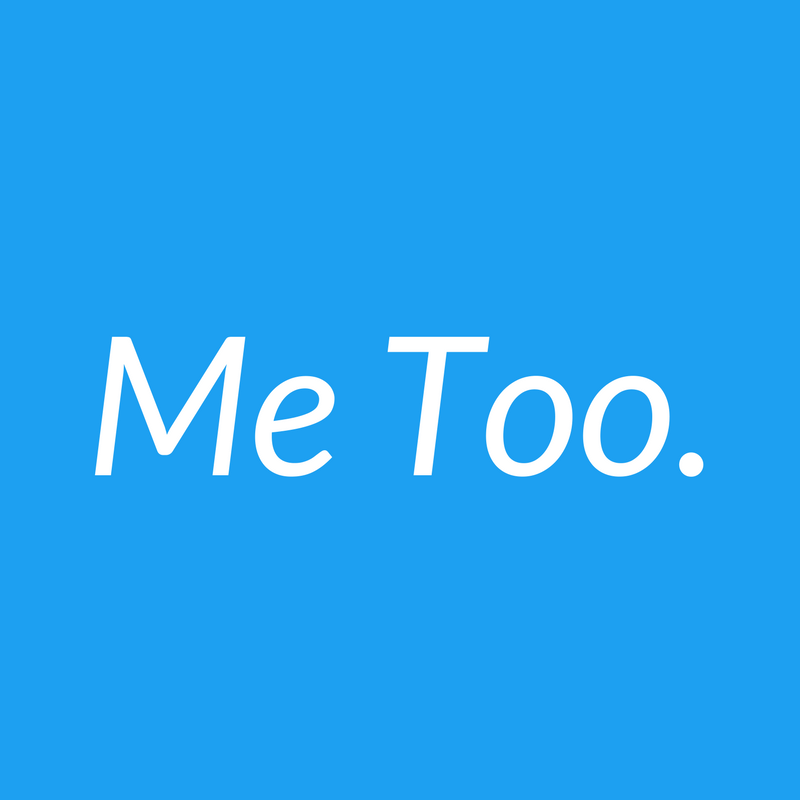MOVEMENT
#MeToo: How Do We Respond?

Two little words with an immense amount of power…#MeToo.
For too long we have thought of our reactions to sexual assault and harassment in a dark light. If it happens to us we tend to respond with not responding at all. We might feel ashamed, we might feel shocked, we might leave it unspoken, we may fall silent, we may just want to forget it and move on.
On Sunday afternoon, Twitter confirmed what we had hoped was not true, that so many more women, and men, than we thought have experienced some kind of sexual coercion, intimidation, or worse. On Sunday afternoon, Alyssa Milano opened up a dialogue about this very topic. She wrote “If you’ve been sexually harassed or assaulted write ‘me too’ as a reply to this tweet”.
The amount of responses this has received and the vast flood we’ve seen across the internet has shed a spotlight on the enormity of the problem. The expanse of this issue has also recently been brought to light by the recent scandal involving Harvey Weinstein, where many women came forward speaking to the vile behaviors of a powerful man.
We have all encountered a Weinstein, haven’t we?
The movement of #MeToo has given a platform to those of us that are thinking to ourselves “me too” and united us in a way we haven’t been before. There is monumental work to be done, of that there is no doubt.
Sexual harassment is very serious, but you are not alone in overcoming it.
What do to when others post “me too”:
- Don’t panic. This may be the first time they are sharing their experience or it could not. Either way it is best to take a deep breath.
- Don’t just like and move on. Anyone who has the courage to tell their story and be vulnerable about this traumatic experience deserves more than just a like. Let them know they are heard and you care.
- Don’t try to find out what happened. If they want to share they will, but respect their privacy and their courage to respond “me too” in any form they saw fit.
- Applaud their bravery. Support the person, let them know you believe them.
- Feel free to let them know you’re sorry this happened to them. This recognizes their experience and shows empathy.
- Avoid judgment. It is difficult to know where the person is in their healing so it is important to avoid statements that reflect on their process and the possible events that happened.
- Don’t try to fix it for them. This is not a situation they need your logic for. What you can do is show you are there for them.
- Let them know you care. Depending on how close you are with the person, it is helpful to let them know, in whatever degree is appropriate, that you support them and applaud their courage.
- Don’t try to be their therapist. It is not your job to provide them with ideas of what you think they should do or how you think they should feel. If this person is close to you, feel free to provide appropriate resources, such as counseling services.
- Understand this may have brought up complicated emotions. No matter when the incident happened, this movement could bring up memories or negative emotions. All of this is normal. Recognize these feelings and be there for them.
Some resources include RAINN, Crisis Text Line, Sexual Assault Referral Centres, and Gateway 2 Counseling.
How to respond to your own feelings:
- You are not alone. This movement is proof of that. We see you, we care, we believe you.
- Understand that you don’t have to share. It is probable that we have all experienced our own trauma and we all have the choice to share or not to share. Thinking “me too” and supporting those that do respond is enough.
- Be aware of your feelings. It may not come to you now, but be aware that this movement may trigger some negative feelings for you about your past. That is normal and that is okay. Being aware that they may come will help you better respond to them.
- Do not compare. Everything is relative and we are all affected by things differently.
- Reach out. If you feel the words bubbling up inside of you, chances are that it will be healing for you to share them. This could be with a trusted friend. a loved one, or a counselor.
Sexual harassment is very serious, but you are not alone in overcoming it.
Our voices are powerful and we are not alone.
Today Twitter confirmed that #MeToo has been retweeted more than a half a million times.
Sexual harassment is very serious, but you are not alone in overcoming it.
